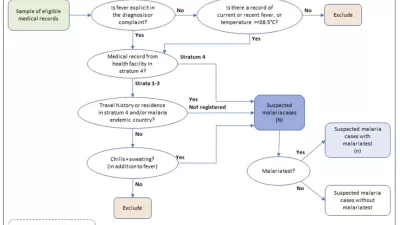Regional Malaria Elimination Initiative (RMEI) Evaluation
The Regional Malaria Elimination Initiative (RMEI) is a results-based aid program seeking to accelerate progress toward malaria elimination in Mesoamerica and the Dominican Republic.The Regional Malaria Elimination Initiative (RMEI) is a results-based aid program seeking to accelerate progress toward malaria elimination in Mesoamerica and the Dominican Republic. As detailed in WHO’s framework for malaria elimination, accuracy of data is essential in a malaria elimination setting where there is need for timely, accurate and reliable surveillance and response systems. RMEI’s theory of change calls for evidence-based decision-making and a shared measurement system for continuous data communication, verification of the results of the activities, and continuous improvement. IHME carries out these monitoring and evaluation activities through several methods as listed below, which allows those involved to identify emerging solutions, study and replicate them, and continuously adapt to achieve results.
Areas of work
- Surveillance system evaluation to inform how well surveillance systems in place are able to detect cases and respond in a timely manner
- Process evaluation to explore the challenges to RMEI implementation, the drivers and barriers to its success, and explain its impact and assess the shifts in programmatic operations, facility functioning, and individual behaviors
- Health facility surveys to measure the capacity and performance of the facilities in diagnosing and treating cases to control the epidemic
- Lot Quality Assurance Sampling (LQAS) convenience sample methodology to assess the population’s knowledge, attitudes and practices around prevention, treatment, and control of malaria
- Overall evaluation to examine RMEI data collected from the baseline and first follow-up measurement and to synthesize all available quantitative and qualitative information. Evaluation will explore what were the effects of the initiative, how were the effects achieved, and, if the desired effects are not achieved, why were they not achieved.
Funding and partner organizations
RMEI is funded by the Bill & Melinda Gates Foundation (BMGF), the Global Fund, and the Carlos Slim Foundation. It is administered by the Inter-American Development Bank (IDB) in collaboration with the Pan American Health Organization (PAHO) and the Clinton Health Access Initiative (CHAI) in close coordination with the Council of Minister of Central America and Dominican Republic and with the Project Mesoamerica. IHME is the independent evaluator of RMEI and works to verify and evaluate progress toward malaria elimination.
The RMEI Evaluation team harnesses the expertise of numerous distinguished organizations to carry out this work. Data is collected by the following organizations across the nine participating countries:
- UNIMER
- Borge y Asociados

